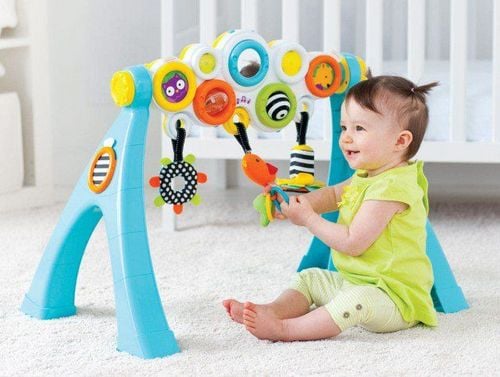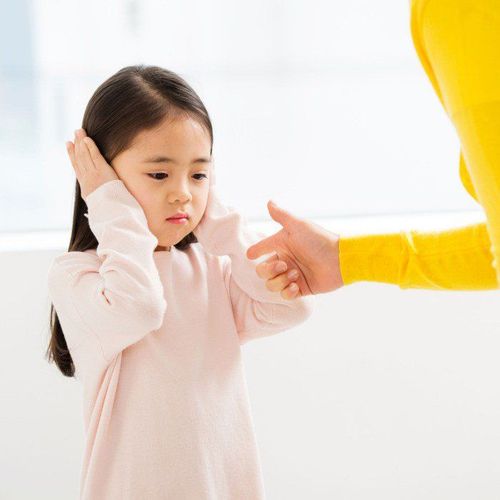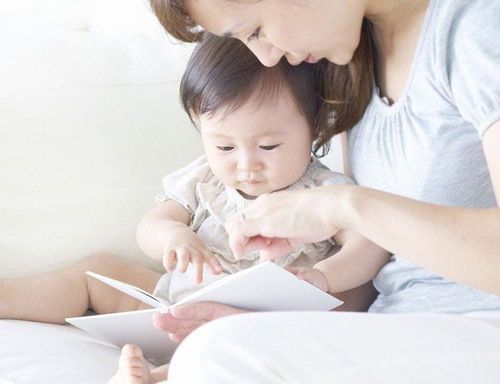This is an automatically translated article.
Becoming more independent and doing more things without parental help is an important part of a child's natural development. Teaching children to be independent from a young age is not a simple job that any parent can do. How to make children independent without having to use punishment, this causes many parents a headache.1. Why is it important to teach children to be independent from a young age?
Your kids today may be kids but eventually, they will grow up to be fully engaged adults in life. Learning a few life skills early in life can prepare them well for the demands of adulthood.Some of the reasons why you need to teach children independence from a young age include:
It takes children a while to understand the concept of choice and make decisions that they think are best for them. By introducing choices early in life, children can begin to understand themselves better and understand what truly makes them happy. Life is not always happy and children are not always able to enjoy everything around them. There will be times when children don't do what they expect. But if the child is an independent child, he will realize his mistakes, turn to you for support and guidance to do better. Self-esteem in a person is developed quite early. And this can be stronger if a child begins to have faith in himself and his own decisions. Independence helps with this and makes the child feel self-worth from the start. Books contain information but knowledge is only gained through action. The difference between warning children about a danger and reality when they face it is huge. Independence allows children to start learning things on their own and become more aware of themselves.

2. When does a child's independence develop?
Children will probably start doing things for themselves at some point after they turn 1 year old. But every child develops at his or her own pace, and they may be more interested in learning one skill set before mastering another. So don't worry too much if your child develops differently from other children of the same age.Children's independent personality is more evident after the child is 18 months old. While children will still need a lot of help and attention for years to come, most children will have the basics of self-care such as dressing, washing hands, feeding and walking themselves. children's own hygiene. Children can master these activities as soon as their fourth birthday.
Although children will not make significant progress in self-care until they are toddlers. But you'll probably see a few other signs in your baby, for example, around 8 months of age, she'll begin to understand how objects relate to each other and can begin to use them for their proper function. like combing their hair, playing on the phone, etc.
A few weeks later, your baby will start to learn how to drink from a cup and in a few months he'll be able to hold a cup on his own. However, in reality, babies will grasp objects firmly until the age of 24 months. At 11 months old, your baby will even begin to stick out his arms or legs when you dress him.
Babies will really start to develop a sense of self in the first few months after turning 1 year old. By 18 months, babies will recognize themselves in the mirror, and they will no longer reach out and try to touch their own image in the mirror.
And after this stage, your baby will probably go through a phase of saying "no" to a lot of things. That's how children assert their independence.
3. 7 important milestones in the process of children becoming independent

Trẻ có thể cầm bàn chải một cách thuần thục khi trẻ lên 3 tuổi
Using spoons: Some toddlers start wanting to use utensils as early as possible. at 13 months, and most babies have developed this important skill by 17 or 18 months of age. By age 4, your child will probably handle utensils like an adult and be ready to learn table manners. Until then, stay by your side and help. Undressing: Most children learn to undress between the ages of 13 and 24 months. Brushing: Children can master a toothbrush by the time they are 3 years old. However, dentists say, children cannot clean their teeth thoroughly at this age and still need help from adults. Dentists recommend that parents brush their children's teeth thoroughly every night until they reach school age. As a compromise, if your child likes to brush his teeth, let him brush his teeth in the morning. Or let your baby brush first, then you do the rest for him. Wash and dry hands: This skill develops around 24 months of age and is something children should learn before or at the same time as using the toilet to avoid germs. Dressing: babies can dress themselves by 24 months. Also, at 24 months, your baby will probably take off his shoes on his own. Use the toilet: most children are not physically ready to start toilet training until they are at least 18 to 24 months old. The two main signs that a child is ready to use the toilet include: being able to pull his pants up and down on his own, and knowing when he has to go to the bathroom before it happens.
Prepare breakfast: kids as young as 3 can get themselves a bowl of cereal when they're hungry, and most kids can by the time they're 4:30. If your child wants to do this, make it easy by keeping baby-sized cereal and milk cartons in the kitchen cupboard or refrigerator on the child's level. As time goes on, children will get better and better at taking care of themselves. Before you know it, kids will be able to tie their shoes and shower on their own, and then it's only a matter of time until they can do the laundry and cook dinner, not to mention driving themselves. go to the cinema.
4. What do you need to do to teach your child to be independent?
As always, encouragement is key in teaching children to be independent. Whenever your child tries a new skill, whether he succeeds or not, tell him you're proud he tried and encourage him to try again.You should not step in too quickly to help the child. It is essential that children have enough time to master these things on their own, at their own pace. So don't pressure your child before he's ready.
Baby needs to be flexible. If you learn how to wash your hands, the bathroom can be messy for a few days. Or if dressing yourself means that your child can spend the week running around the house in an old pink turtleneck, a bright red dress, blue jeans, and flip flops, let them do whatever they want. what children like. Because the more children practice, the better they will be.
Make sure you keep an eye on your child as he or she starts experimenting with doing things on his own. Set limits and explain them: It's not safe for them to tell children why they can't turn on the oven or cut their own meat. They may not be very happy about it, but they will eventually agree.

Khuyến khích trẻ làm mọi việc là chìa khóa trong việc dạy trẻ tự lập
5. Children are not independent, when to care
Children develop skills differently, your child may learn some skills faster than others, but if your child doesn't show an interest in doing anything for himself by the time he's older, 2 years old, tell your doctor at your next visit. It's also important to remember that premature babies may reach these and other milestones later than babies of the same age but born at full term .As kids get older, kids learn to do more things for themselves, from taking off their shirt to getting their own bowl of cereal in the morning. Watching your child become more independent can be bittersweet, but it's an important part of every child's personal and social development.
Please dial HOTLINE for more information or register for an appointment HERE. Download MyVinmec app to make appointments faster and to manage your bookings easily.
Articles refer to sources: babycenter.com, healthychildren.org, parenting.firstcry.com












